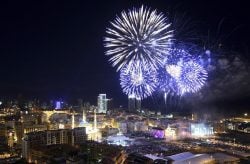The Five Biggest News Stories of 2013
Next up in recap lists, we compile the stories that most hogged the media spotlight in 2013, a year particularly rife with fears that the ongoing conflict in neighboring Syria might spill out into Lebanon.
1. The Government Resigns
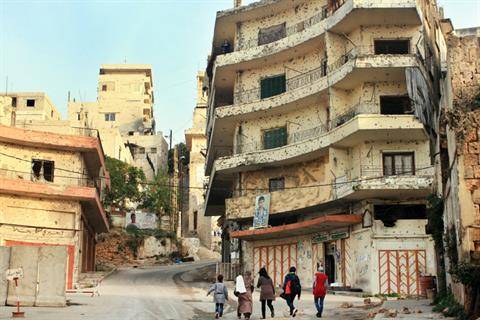
(Photo via the Daily Star)
On March 22nd, Prime Minister Najib Mikati dropped a political bombshell when he announced the resignation of his government. His decision, which Mikati said he hoped would be “an impetus for leaders to shoulder their responsibilities,” came after disagreements on two internal issues: the formation of an elections committee to supervise the upcoming parliamentary polls and the extension of security chief Ashraf Rifi’s term in office.
The collapse of the government immediately cast doubts on the parliamentary elections due to be held in June. Attempts earlier in the year to approve an alternative election law had failed.
2. Elections Gets Postponed, Clashes Ensue
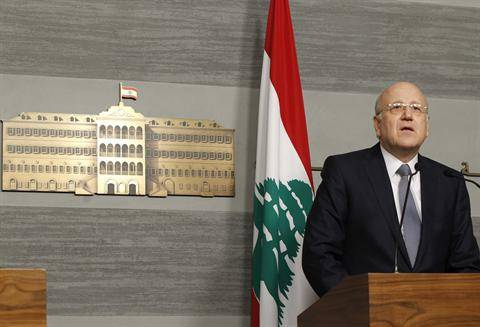
(Photo via english.al-akhbar.com)
… And sure enough, the elections were delayed.
It was announced in May that they would be postponed until November 2014, citing “political deadlock and the civil war in Syria.” This seventeen-month delay is the first time the Lebanese parliament has lengthened its mandate since the end of the civil war in 1990. This came after two months of failed negotiations over an electoral law, along with newly designated premier Tammam Salam’s inability to form a new government.
Demonstrations in Beirut multiplied in the weeks following the announcement, with angry protesters going as far as pelting a Member of Parliament’s car with tomatoes.
3. Ahmad al-Assir Leads a Two-Day Battle Against the Lebanese Army
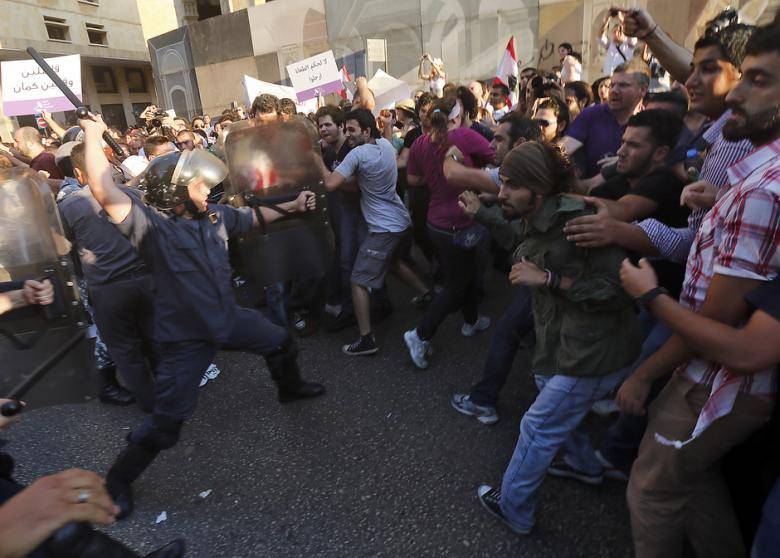
(Photo via aljoumhouria.com)
Assir has been regularly making headlines since 2012. The famous bearded sheikh is popular for his antics – from dance performances to frolicking in the snow in front of the cameras on a trip to Faraya, but also for his rhetoric against the Syrian administration, and his denouncement of Hezbollah for holding weapons inside the country.
In June of this year, clashes broke out in his bastion of Saida between some of his supporters and what is believed to be Hezbollah sympathizers. Lebanese army troops intervened on June 23rd, and heavy street fighting erupted between army members and gunmen loyal to Assir, in the worst fighting to hit the country since the beginning of the conflict in Syria. 17 Lebanese Army soldiers were killed, and dozens wounded. To this day, Assir’s fate remains unknown, and speculation is rife as to his whereabouts.
4. A Wave of Suicide Bombings Rocks the Country
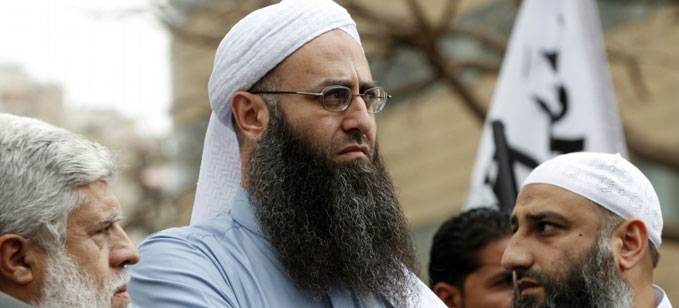
(Photo via aljoumhouria.com)
In possibly the most notable manifestation of the Syrian spillover, a number of bombings have rocked the country all throughout the year.
A car bomb killed at least 16 people in Dahiyeh on August 15th. Also in August, twin car bombs in Tripoli left 47 dead. And on November 19th, twin suicide bombings detonated near the Iranian embassy in Beirut, killing at least 23 and injuring more than 160.
5. Sunnis and Alawites Face off in Tripoli
(Photo via the Daily Star)
Ever since the beginning of the Syrian conflict in early 2011, Tripoli has been its microcosm, prompting constant fears that the city is itself on the brink of a new civil war. Clashes between Sunni and Alawite residents of the neighborhoods of Bab-al-Tibbaneh and Jabal Mohsen have erupted on several occasions this year.
Most recently, in late November, 12 people were killed in renewed fighting between the two sects.



